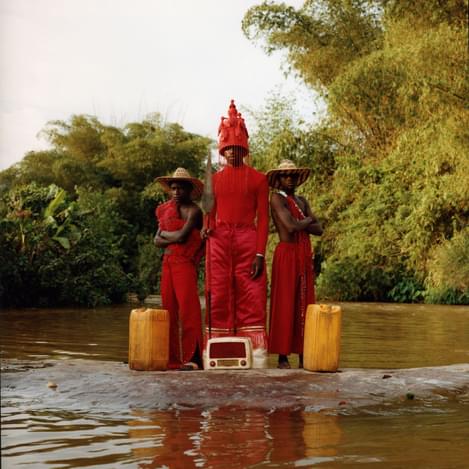Petite Noir's latest EP is a genre-bending tour de force
"La Maison Noir/The Black House"

South African born and of Congolese heritage, llunga has experimented heavily with the possibilities of music, repeatedly deconstructing his own art and approaching from a new angle to remain current and bring together expertly crafted compositions and meaningful lyrical poetry.
Young Fathers, a band that this record takes many notes from, once said, “When an artist knows what genre they are, they’ve fucking failed.” llunga’s self-proclaimed genre, ‘Noirecore’, has taken many forms since his first release, an E.P entitled The King of Anxiety. Moving from the melodic lacklustre of post-punk, through the pop-tinged indie of his debut album, Life Is Beautiful, and now an amalgamation of kwaito, big room and hip-hop, La Maison Noire stands out as his most impressive and genre-defying release yet.
The recurring themes of this mini-album are rooted in political friction, visceral connection to history and a burning passion to break down borders. The lead single, “Blame Fire”, opens up the mini album and is best visualised through the accompanying film released in parallel with the album. The dreamy and artistic landscape brought to life by llunga’s colourful visuals of groups of black men and women dressed in red shines a light on what issues he is hoping to highlight in these songs.
“Yeah, we need to realize that our skin is a blessing, Fuck a curse.” he sings near the start of “Blame Fire”, a reference to the Curse of Ham, a parable in the book of Genesis where Noah puts a curse on his grandson Canaan after his son, Ham, saw him naked. This story, however outdated, was used by many religious groups as an excuse for slavery and helps lay down the foundation of what themes these songs will engage with.
“F.F.Y.F (POW)”, an energetic indie anthem that sounds like an early Foals song mixed with the infectious singalong of Metronomy’s The English Riviera, features supporting vocals from Llunga’s creative partner and wife, Rha! Rha!. The repeated mimicking of gunshots from llunga and Rha! Rha! have a militant energy that mixes with the upbeat mood of the song to create a musical protest against gun violence. Support from the visual album helps illustrate the fight against war llunga is putting across with these songs.
Ilunga’s ability to create visceral moments of artistry is built on his power to tell a story. The way in which these songs reach an end, build into one another and take you on a journey is a testament to Ilunga’s power to engage an audience without the need of overproduced hooks. However, this doesn’t mean he’s averse to the odd catchy moment here and there. “R E S P E C T” is undoubtedly the most exciting song on the album where llunga sounds like Pharrell Williams from his days in The Neptunes but still manages to keep ‘Noirecore’ at the heart of the song, mixing steel drums and shekere with synthetic chord progressions to find a respectful balance between the traditional and the progressive.
Features from Danny Brown on “Beach” and Saul Williams on “Blowing Up The Congo” help build this mini album into something bigger than a filler release between two bigger offerings. The Black House is a dominating force and completely captivates you in a way that is both infectious and rewarding. The fluctuating mix between lyrical and instrumental moments of class turn this record into a collection of songs that deserves recognition in the diverse genre-defying landscape of music we’re seeing take centre stage.
Get the Best Fit take on the week in music direct to your inbox every Friday

Tunde Adebimpe
Thee Black Boltz

Julien Baker & TORRES
Send A Prayer My Way

Bon Iver
SABLE, fABLE





